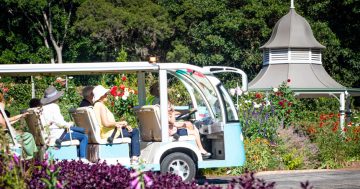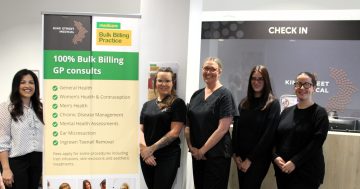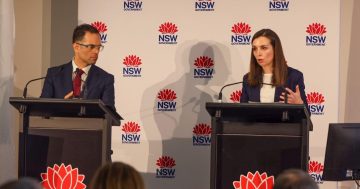
We’re facing a critical shortage of GPs now and well into the future and that’s not good news for patients. Photo: orathaim164
In the past few months I’ve had more than my usual number of medical appointments.
They’re not always appointments for me, but I have become increasingly disheartened with my interactions with the medical profession.
They’re not life-threatening issues and I know I’m not alone in my gripes – long waiting times to get an appointment followed by an overly long time in the waiting room followed by hasty, rushed consultations, lack of communication and just general dissatisfaction.
I understand that often appointments run over time and that puts the doctor behind for the rest of the day.
But surely there’s something wrong with the system when you book a 7:45 am appointment and the doctor still manages to run 20 minutes late.
Throw a student doctor into the mix – yes it’s mandatory and it’s great they get actual, real-life experience – but please, factor that into the doctor’s day if you’re going to take twice as long with a patient.
I’m still waiting to hear from my GP’s clinic, four days after calling to get blood test results. An automated message told me the doctor wants to discuss the non-urgent results, so please make an appointment “within the next four weeks”.
Easier said than done, considering the doctor only had one appointment free for the week at a time when I wasn’t available. Not only that, but the doctor is finishing up with the practice at the end of the week.
Clearly finding a new doctor is high on my list, but it’s easier to win the lottery, considering so many surgeries have closed their books.
And that’s another gripe. Do a search for a doctor in your preferred suburb, read through their appealing website that boasts X number of doctors and proudly lists their qualifications. Then try and make a booking with one of those extremely qualified doctors, only to be rejected because “sorry, we’re not taking new patients”.
Can you please, please put a line across your flashy website saying “sorry, we’re not taking new patients”?
I’m fortunate I can afford the cost of consulting a doctor of my choice so I have more options than many other people – people like my mother, who lives on a pension and insists she has to see a GP who bulk-bills.
However, bulk-billing clinics are becoming as rare as hen’s teeth and often those centres that do bulk-bill are so overwhelmed that patients are churned through with precious little time to ensure their needs are met.
We rely on our GPs to listen to what we’re saying (and sometimes what we’re not saying), take our fears seriously and clearly communicate their diagnosis and treatment.
We also know that GPs should be our first point of contact when we are not well; indeed, the very strong, repeated message from our health experts is take your health problems to a GP, not an emergency department.
Finding a doctor who suits your needs, with whom you feel comfortable and cared for, is not easy.
Personally, I prefer someone with more life experience even though you could argue that younger doctors who are eager and fresh have more recent knowledge. I want someone who I can relate to and who knows first-hand some of the challenges that life can throw at a middle-aged, full-time worker, wife and mum.
But Australia is in the grips of a GP shortage and it’s worsening. According to the Royal Australian College of General Practitioners (RACGP), we’re expected to face a shortfall of 8600 GPs by 2048.
Demand for GP services is increasing because our population is growing, changing and ageing. Between June 2019 and June 2023, the number of Australians aged 65 years and over increased by 13.1 per cent. Yet the number of GPs isn’t growing at anywhere near that rate.
The RACGP points out that older patients, especially those with multiple chronic conditions, have a far higher demand for GP services than younger, healthy patients.
Those aged 85 or over made 17.3 average visits to GPs in 2023, compared to just 3.5 visits for patients aged 10-14 years.
With a federal election looming, the RACGP is urging all political parties to make commitments to ensure essential GP care is affordable and accessible for all Australians.
RACGP president Michael Wright says the organisation has three key measures which it believes would make that possible:
- A 40 per cent increase in patients’ rebates for longer consultations, which would halve patients’ out-of-pocket fees and fund an extra 4.6 million bulk-billed appointments every year
- An extra 1500 training places over the next five years for specialist GPs. The workforce is ageing, with a third of GPs planning to retire in the next five years
- Better access to comprehensive and affordable care for women’s health issues such as endometriosis, chronic pelvic pain, menopause, and perimenopause.
“There’s no substitute for the care you get from a GP who knows you and your history, and every Australian deserves access to high-quality healthcare,” Michael says.
Michael, I couldn’t agree with you more.
We can only hope that sitting MPs as well as those seeking our votes not only agree, but actually listen and act.
There’s not a lot we average punters can do to achieve accessible and affordable health care, but we do know how to vote and we can certainly make our voices heard at the ballot box.















